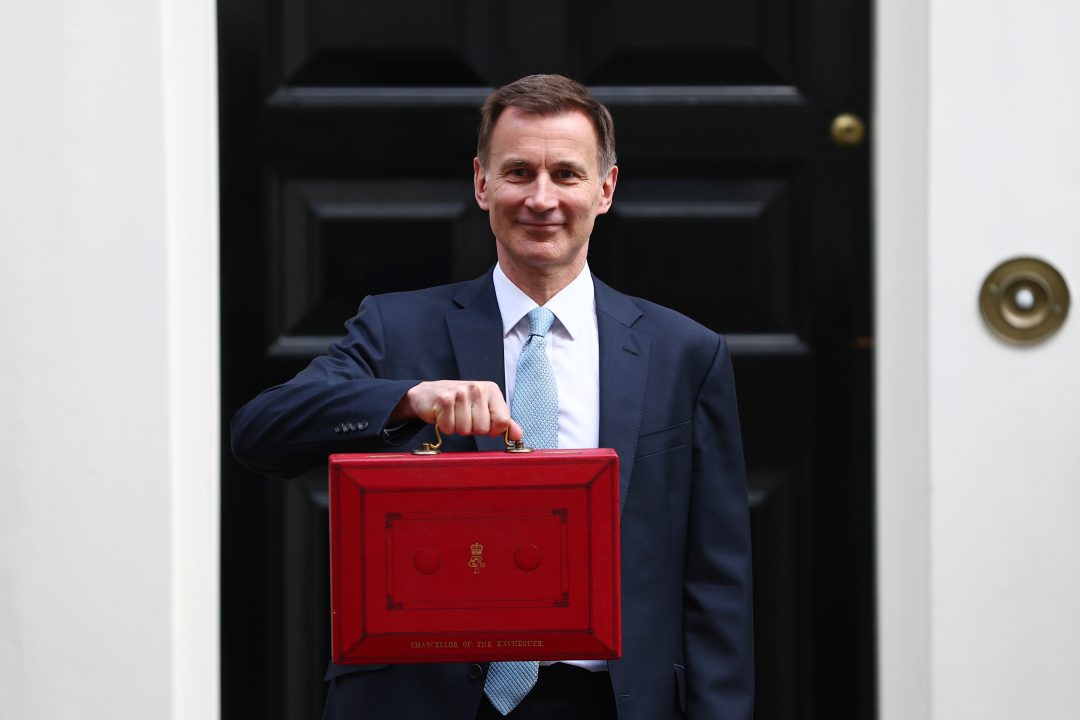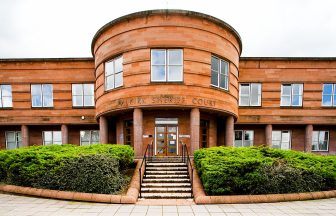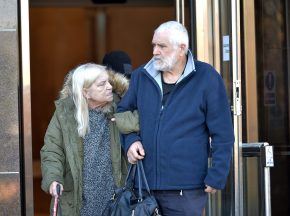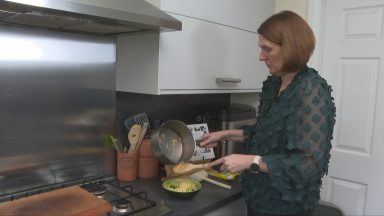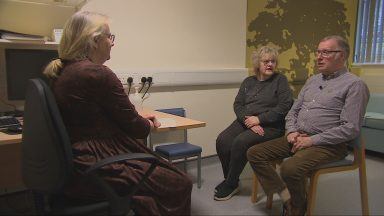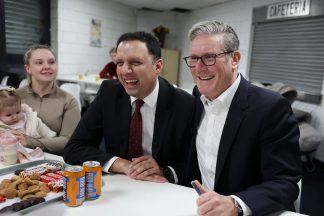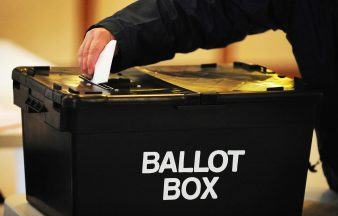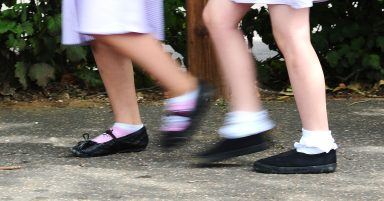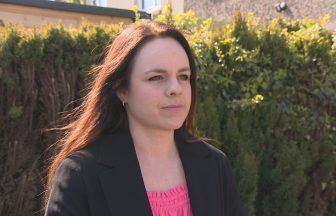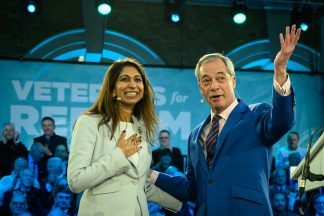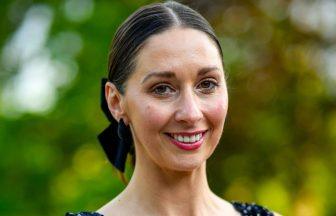Key Points
-
 Chancellor announces 2p cut to National Insurance as he delivers the Spring Budget
Chancellor announces 2p cut to National Insurance as he delivers the Spring Budget -
 Windfall tax on North Sea oil and gas firms to be extended for another year
Windfall tax on North Sea oil and gas firms to be extended for another year -
 Scottish Tory leader Douglas Ross says the decision to continue the levy is ‘wrong’
Scottish Tory leader Douglas Ross says the decision to continue the levy is ‘wrong’ -
 Scottish Government to receive another £300m extra in Barnett consequentials
Scottish Government to receive another £300m extra in Barnett consequentials -
 Relief from Scottish whisky sector after alcohol duty frozen
Relief from Scottish whisky sector after alcohol duty frozen -
 UK Government will directly invest in Dundee, Shetland and Peterhead
UK Government will directly invest in Dundee, Shetland and Peterhead -
 Non-dom tax loophole to be closed, bringing in nearly £2bn a year
Non-dom tax loophole to be closed, bringing in nearly £2bn a year -
 New taxes on vapes confirmed from October 2026 along with a one-off increase in tobacco duty
New taxes on vapes confirmed from October 2026 along with a one-off increase in tobacco duty -
 Forecasters say inflation will dip below 2% within months
Forecasters say inflation will dip below 2% within months
The chancellor has used the Spring Budget to slash the main rate of National Insurance by 2p for millions of workers across the UK.
The pre-election tax giveaway will save the average employee around £450 a year, Jeremy Hunt said.
The main rate of National Insurance will go down from 10% to 8% and follows a similar 2p decrease in November.
The decision will see workers on £35,000 a year save around £900 as a result of both cuts.
Hunt said: “That means the average earner in the UK now has the lowest effective personal tax rate since 1975 and one that is lower than in America, France, Germany or any G7 country.”
But the changes come against a backdrop of frozen thresholds which will see more people dragged into higher tax bands.

The National Insurance cut from April will be worth an average of £450 for workers and £350 for the self-employed.
The chancellor, who has faced pressure from Tory MPs to ease the record-high tax burden, promised “permanent cuts in taxation” that would bring “higher growth” as he seeks to woo voters ahead of this year’s general election.
But he defied calls by some Tories to slash Income Tax instead – something better understood by voters but more expensive for the chancellor.
The economy slipped into a technical recession at the end of 2023 and the Tories are around 20 points behind in the polls, meaning Hunt is under pressure to revive both growth and the Conservatives’ election prospects.
Labour has said any reductions in National Insurance would be cancelled out by the UK Government’s continued freeze on tax thresholds, meaning more people are dragged into a higher band as their pay increases.
Experts said that a 2p reduction in National Insurance contributions would not by itself be enough to stop the tax burden from reaching record levels by the end of this decade.
The Resolution Foundation think tank said the biggest net beneficiaries of the National Insurance cut, combined with threshold freezes, are those earning £50,000, while those earning £19,000 or less will actually be worse off.

Insight Colin Mackay Political Editor
Cutting 2p off National Insurance doesn’t look like cutting much ice with voters.
The chancellor tried it in November and it didn’t register with voters in opinion polls or in by-elections.
Chopping another 2p off in today’s Budget doesn’t look like changing many more minds so that makes a May 2 General Election look less likely as a result of this Budget.
There are things in this Budget that will be welcomed: the National Insurance cut will be welcomed by workers saving an average £450 next year according to the chancellor, the increase in the Child Benefit threshold will be welcomed by parents earning £50-60k a year, the whisky industry will welcome the alcohol duty freeze, motorists will welcome the fuel duty freeze.
But even Scottish Conservative leader Douglas Ross does not welcome the extension of the windfall tax on North Sea oil and gas profits, describing it as a “step in the wrong direction”.
Sir Keir Starmer raised the key question for voters: “Who do they think feels better off?”
With energy bills sky high, food and clothing costing more because of inflation, mortgages still high, record number of people relying on food banks the answer is not many people I know feel better off.
In 1992 John Major called a General Election after cutting national Insurance by 2p, and he went on to win. Prime Minister Rishi Sunak will be hoping this Budget shifts the opinion polls but it seems highly unlikely it will be by anywhere near enough to give him anything like the confidence of John Major.
The General Election still looks further off than May.

Deputy first minister Shona Robison had urged Hunt to avoid tax cuts.
She described the Spring Budget as a “betrayal” of public services in Scotland.
She told STV News: “This is a budget that is not balanced, and like the Autumn Budget, it is at the expense of public services and particularly on our capital budget.
“There is not a penny of extra money for capital in Scotland, that’s no extra money for affordable housing or health facilities.
“It is not good for Scotland and I think the judgement of the people of Scotland will be that it is a bad deal for Scotland.”
During the Scottish Government’s budget in December, housing was cut by around £200m. That’s despite several councils declaring a housing emergency.
Robison – who is also the finance secretary – said she was forced to make the cut because the Scottish Government has seen a decrease in its capital budget from Westminster.
She said of the nearly £300m in Barnett consequentials coming to Scotland, around £237m will go to health. Robison had already committed £62.7m in Barnett funds from the UK Government going to councils.
Keir Starmer branded the chancellor’s budget “the last desperate act of a party that has failed”.
Speaking in the Commons, the Labour leader said: “There we have it, the last desperate act of a party that has failed.
“Britain in recession, the national credit card maxed out, and despite the measures today, the highest tax burden for 70 years.
“The first Parliament since records began to see living standards fall, confirmed by this budget today.
“That is their record, it is still their record, give with one hand and take even more with the other, and nothing they do between now and the election will change that.”
What else was announced?
The chancellor announced that the windfall tax on the profits of oil and gas producers will be extended until 2029, with the aim of raising £1.5bn in tax.
Scottish Tory leader Douglas Ross said the decision was “disappointing” and that he would vote against it.
Hunt also offered more help with child benefits to parents earning more than £50,000 and cut the top rate of capital gains tax on property sales – arguing that reducing it from 28% to 24% would bring in more money because of increased activity.
But as he insisted that those with the “broadest shoulders” would pay more, he committed to scrapping the non-dom status for wealthy foreigners, putting the £2.7bn a year raised as a result towards tax cuts.
For drivers, fuel duty will be frozen for a further 12 months. That’s expected to save the average motorist £50 next year and brings the total savings since the 5p cut was introduced to around £250.
An alcohol duty freeze will also continue until February 2025, with the chancellor claiming this would help 38,000 pubs across the UK.
The two duty freezes are expected to help reduce headline inflation by 0.2 percentage points in 2024-25.
And new taxes will be introduced on vapes from October 2026, alongside a one-off increase in tobacco duty and a one-off adjustment to rates of air passenger duty on non-economy flights.
Follow STV News on WhatsApp
Scan the QR code on your mobile device for all the latest news from around the country


